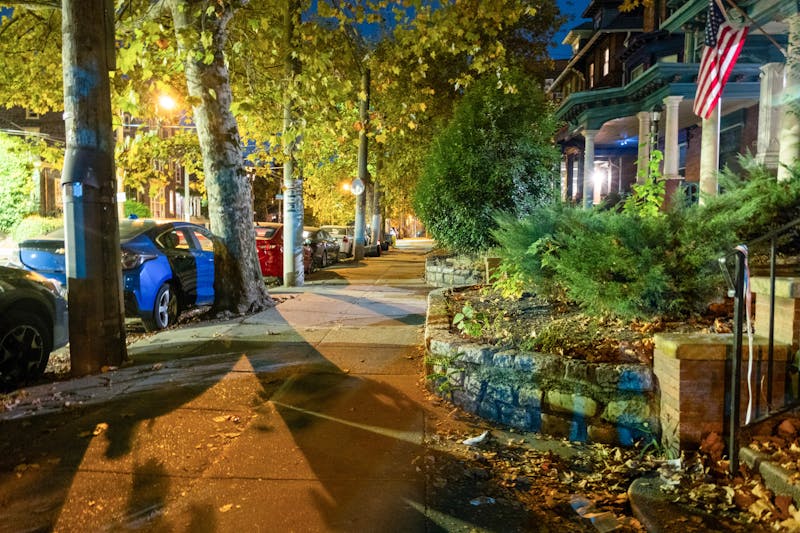
I used to work with a man named William Nieves. A stocky Latino man, Nieves was once a victim of mistaken identity. The police, you see, mistook him for two tall, thin African-American men. Eyewitnesses told police they had seen those two tall, thin African American men and not Nieves, but Philadelphia police and prosecutors withheld that information from a jury, leaving Nieves, until he was acquitted at retrial, to spend six years on death row in Pennsylvania for a murder he didn't commit.
Once, during my time volunteering for Pennsylvania Abolitionists United Against the Death Penalty, where I worked with Nieves, I had dinner with a man named Ray Krone. Krone was convicted on the basis of circumstantial evidence, but after 10 years on death row in Arizona, he was finally proven innocent by DNA which implicated another man.
I was lucky to meet Nieves and Krone. They, of course, were luckier -- lucky not to be dead, executed for the crimes of others, lucky to be among the 118 people who have been released from death row since 1973, rather than just another number added to the 946 executed in that time.
Nieves, Krone and the rest of the exonerated had people willing and able to fight for them, to muster the time, money and sweat that underpaid, under-funded, overworked and sometimes just plain incompetent defense attorneys often cannot. They were lucky that they escaped a "justice" system in which, as the Supreme Court ruled in Herrera v. Collins, proof of innocence is not enough for a court to stop an execution.
I'm telling the stories of these men because the occupants of death row are often faceless. They become the pawns of politicians, both Democratic and Republican, eager to seem tough on crime, feigning sympathy for the victims and their families by calling for more death. They advocate spending money on capital punishment -- far more expensive than life imprisonment -- which should instead go to providing counseling and financial help for victims' families, forgotten once their political worth is expended.
I'm telling these stories because in the next few weeks the fate of 72 more faceless people will be decided.
This past fall, the Supreme Court heard arguments in the case of a Missouri man named Christopher Simmons, convicted of kidnapping and murdering his neighbor when he was just 17 years old. This spring, the court will announce its decision on the central idea of Simmons' appeal -- is it cruel and unusual, and thus unconstitutional, to execute people for crimes they committed as minors?
If you're under 21, this country does not consider you responsible enough to drink alcohol. You're under 18? You can't possibly be expected to decide whether you should sign a contract, smoke cigarettes or buy pornography. And don't even think about voting: You're not mature enough. But, hey, if you're old enough to drive a car, then 19 states think you're old enough to be strapped down and killed.
This shouldn't be about "cruel and unusual." It shouldn't be about "evolving standards of decency," the theory which the Supreme Court will most likely consider in the case, taking into account the question of whether American society has gotten around yet to dropping its support for the unsupportable.
This is about whether the morals of the United States should continue to be dominated by politicians who are willing to sacrifice children for cheap political gain. The U.S. has aspirations to being a world human rights leader, yet stands with only Saudi Arabia, Congo, Iran and Nigeria in permitting the execution of juveniles. It stands with those countries in killing people who, because of their youth, were not physically or mentally equipped to understand the consequences of their actions or fully control their behavior, according to amicus curiae briefs filed by organizations including the American Medical Association, the American Psychiatric Association and the American Psychological Association.
The crimes committed by some of the juveniles on death row were horrific and callous, of that there can be no doubt, and their victims should not be forgotten. But their killers will die for crimes they committed when they were still minors, unable, according to the standard-bearers of American medicine, to be fully responsible. They will be killed by the state in our names.
To countenance the continued execution of juveniles, to allow their deaths at the hands of a system proven to have no deterrent effect, proven to execute the innocent and proven to be biased against minorities and the poor, leaves their blood on our hands. It will not wash off easily.
Alex Koppelman is a senior individualized major in the College from Baltimore and former editor-in-chief of 34th Street Magazine. Rock the Casbah appears on Thursdays.
The Daily Pennsylvanian is an independent, student-run newspaper. Please consider making a donation to support the coverage that shapes the University. Your generosity ensures a future of strong journalism at Penn.
DonatePlease note All comments are eligible for publication in The Daily Pennsylvanian.







